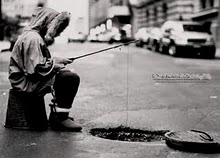Boarding a subway today, dragging my usual work bags, a woman stood to give me her seat – the first time anyone has done that since I last carried Rui into a crowded train, wobbling and subway surfing in front of the train door.
I thought, has the gray in my beard become that much a part of what you see?
How much the last 18 months and more have shrunken and diminished me!
—
There were children on the street, and in the tunnels, riding in front of their mothers and tossed up and down by their fathers. Escaping into the Labyrinth Bookshop on 112th Street near Columbia, I paused by the science and law books. Philosophy stood to the left nearby. A tall, blue-jeaned, white-headed man stooped so deeply over the table with his arms spread wide for support, I thought he might be having trouble holding all that height up. Not very mobile, he looked intently down at the book covers in front of him. I eyed him – if he’d sunk any lower, I imagined I’d ask him if he was right or needed any help. In a gentle voice from across the way, a young woman spoke to him about the books she was holding. She wanted to know what he thought. He lifted partway up and replied in a voice pegged somewhere between professor and grandfather. They talked about a biography of Leibniz, who he is apparently fond of quoting. He put his palm on Nietzsche, Plato, a few others, and declared with each one that if he were younger, he might want to know what this one or that one had to say. But why should he care now what they say, he asked. He knew enough; since 20 years had passed, he said, he had no more need of them. It was holiday shopping. They made their way around the tables to the latest precious books from scholars of literature, , science and religion. They sorted through them all, and I took in some of their talk.
They sat on a small bench together, discussing their selections; what her mother might like, and a few others. Before they stood up to go, she asked him if he knew Rilke, the German poet. He said he didn’t know much, only that he’d written around World War I, which is right. The obviously fond granddaughter took a book in her hand and asked him, “Would you like to hear a poem before we leave?” He said that would be fine, and lowered his head just a little to bring his ear a bit closer to her lips.
And she read these lines from Rilke to her grandfather:
The rich and the lucky can afford to be silent,
nobody wants to hear their stories anyway.
But the wretched have to advertise themselves,
have to say: I’m blind
or: I’m about to become so
or: Nothing on earth works out for me
or: I have a sick child
or: Here I am, all pieced together . . .
And probably even that won’t be enough.
And, since otherwise people will pass them by
the way they pass things, they have to sing.
And then you hear really good singing.
People, though, are strange; they’d rather
hear castrati sing in boys choirs.
But God himself comes and stays a long time
whenever these cut ones disturb him.


A nicely observed moment between a grandfather and his granddaughter, beautifully written.
LikeLike
Well, rather reassuring that God is there to hear them sing, even if he does nothing about it!
LikeLike